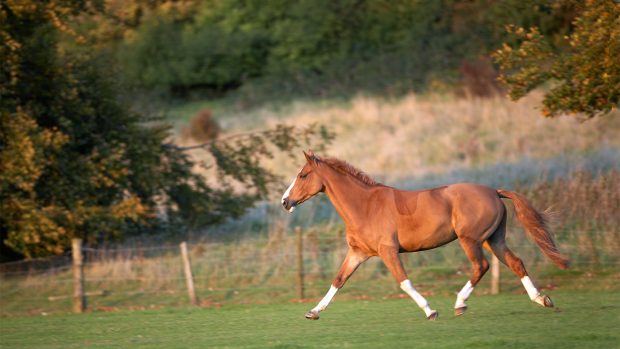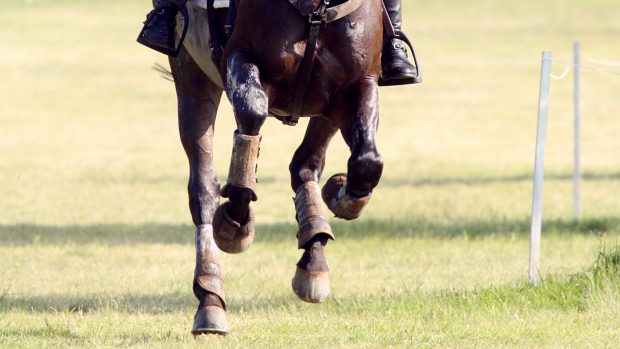Healthy joints are of prime importance to the ridden horse, and lameness is the bane of riders’ lives. While there are many causes of lameness, maintaining healthy joints through a balanced diet can help ensure strong, healthy equine limbs.
Your horse’s basic diet should provide the necessary vitamins and minerals for optimum health and to sustain the level of work, but in some cases supplementation can help support joint condition.
Caring for cartilage
The first part of the joint to suffer under stress is the cartilage, so this is a critical area of joint health.
“Degradation of cartilage sparks a chain of events that leads to inflammation, stiffness and pain,” says nutritionist Kate Jones. “The use of compounds called chondroprotective agents to combat this is well established in both human and veterinary medicine.”
Chondroprotective agents are present in the structure of the horse’s joints. These agents have anti-inflammatory properties, enhance production of synovial fluid and also play a part in the prevention of osteoarthritis.
If the horse’s body cannot manufacture the required amounts of chondroprotective agents, then additional supplementation may be required in order to optimise health and performance.
“The most important chondroprotective agents are glucosamine, which helps synovial fluid, and chondroitin sulphate, which prevents cartilage degradation,” says Kate.
“Chondroprotective supplements can be fed both as a preventive measure and when existing problems are in evidence, and glucosamine and chondroitin sulphate should be given as a combination.”
The principle effects of glucosamine are threefold, as it works to:
- keep synovial joint fluid tough and elastic for strong joints
- assist synthesis of other chondroprotective agents
- regulate cartilage growth and repair
Joint cartilage is made up of two components — collagen, which is a protein, and a complex chain structure involving branches of chondroitin sulphate. The latter is an essential ingredient of cartilage, which works to hinder the action of enzymes that can break down the cartilage and stimulate the action of cartilage-building sites (chondrocytes).
Natural alternatives
There are also various natural products available that can nutritionally support an inflamed joint.
Devil’s Claw, a herbal derivative, is a popular choice for joint health and is reputedly very fast-acting. It does not actually contribute to joint repair, but it is useful for pain control.
MSM (methyl sulphonyl methane) is a natural product long associated with anti-inflammatory properties. It is a bio-available source of sulphur, vital for soft tissue growth, and is required in the synthesis of the bones to connective tissue.
Shark cartilage is still commercially available, despite all species of sharks being under threat. Kate adds: “Couple that with the inhumane method of ‘harvesting’, and shark cartilage becomes a controversial issue. Glucosamine can also be sourced from shellfish – these are sustainable, ethically produced, and just as effective.”
Supplements solely containing plant extracts can help the soft tissue damage associated with joint problems although they don’t provide the correct nutrients for optimum joint health
Oils are frequently chosen by horseowners to supplement their horse’s diet, and cod liver oil improves bone integrity for healthy joints, and is also useful to promote general health.
Kate recommends a high-quality product rich in vitamins and oligo-elements, which are easily broken down and utilised by the horse.
This feature was published in full in the September 2003 issue of HORSE magazine.



